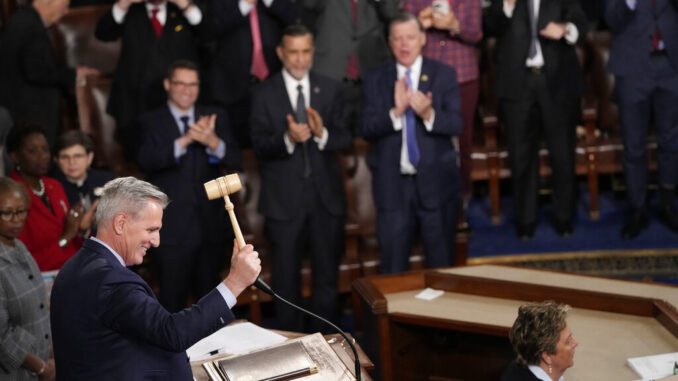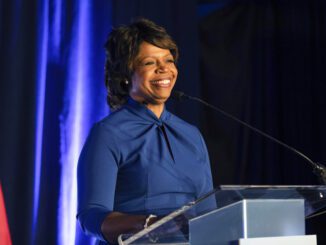
Now that a Speaker of the House has been elected, the country’s political attention is shifting toward what the new session of Congress can accomplish before the next election cycle kicks into high gear.
While the focus has shifted, North Carolina will still be a priority as Republicans look to solidify their majority in the state and Democrats seek to make up ground, meaning the issues North Carolinians care about will be the issues Washington cares about. And right now, no issue weighs more heavily on voters than inflation. Polling from High Point University and Ipsos/Spectrum points to it as the single biggest issue for voters which is reflective of some broader trends across the country.
With inflation taking up so much of the conversation here in North Carolina and throughout the U.S., lawmakers need to prioritize pulling every lever they can to get rising prices under control.
Unfortunately, while Democrats and Republicans have differed on just how to accomplish that, one step that could have an immediate impact has gone mostly overlooked.
For more than four years, companies have been dealing with heavy tariffs on imports from China — with some of those tariffs rising as high as 25% of the price of the items businesses need to import. Given the breadth of the goods hit by tariffs, no industry has gone untouched by the trade war with China.
From agriculture and timber to manufacturers and bicycle companies, the broader economic impact of the tariffs is clear. Tariffs are taxes that unnecessarily add to the cost of goods that businesses need most, which ultimately spills over to the prices that consumers pay in the checkout line.
North Carolina is no exception.
Trade is hugely important for our state. As of 2020, China was the second-largest source of imports to North Carolina, accounting for almost 15% of all imports to the state alone. The longer the tariffs have been in place, the higher the cost to North Carolina. So far that bill has come to the tune of $3.7 billion and counting. At a time when recession fears linger prominently in the background, leaving the tariffs in place is simply unsustainable.
Thankfully, many of the lawmakers we’ve sent to Washington already recognize this. Last year, Sen. Thom Tillis sent a letter to United States Trade Representative Katherine Tai calling for her and other administration leaders to improve the process for companies to apply for exclusions from the tariffs, calling out the “significant burden and costs placed on business owners, farmers, and families in North Carolina” because of expired tariff exclusions.
Having a functional exclusions process would certainly help, but it would still be best to remove the tariffs entirely and bring an end to a trade war that was always doomed to fail. Tariffs create costs for businesses, workers and consumers in the U.S., not for China. That’s why I hope that Sen. Tillis and our new congressional members will work with Ambassador Tai and President Joe Biden to finally lift the tariffs, something that the administration could accomplish without an extended battle in Congress.
What happens in North Carolina has the potential to set the pace nationally on a whole range of issues for years to come. It’s critical that our lawmakers recognize this and use North Carolina’s unique political standing to both bring attention to the harm the trade war has caused, and ultimately bring it to a close.
Bobby Hurst is a former Fayetteville City Council member 2007- 2017.

